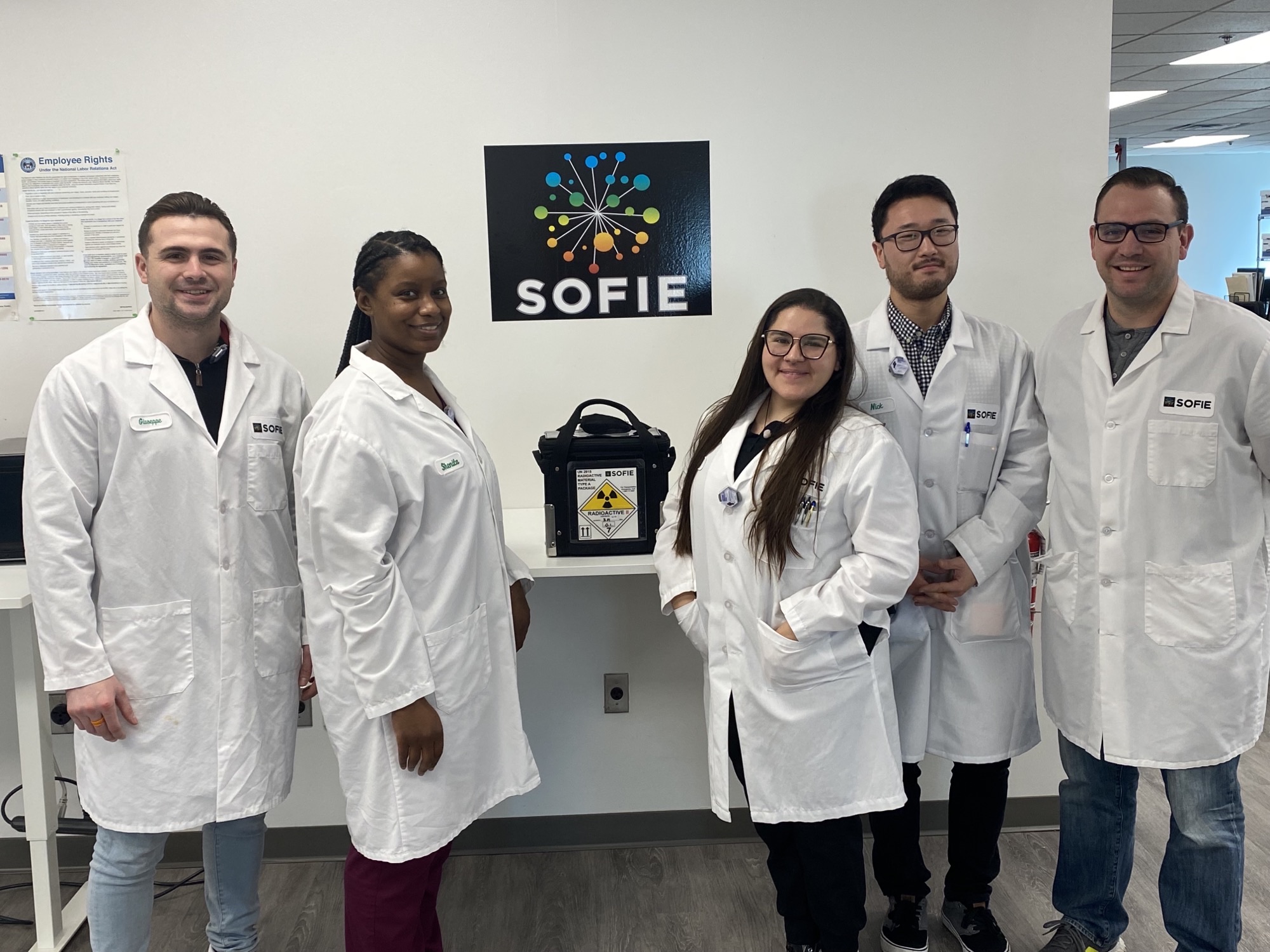SOFIE Biosciences (SOFIE), an established US manufacturer and developer of radiopharmaceuticals, has dosed and imaged the first patient with [68Ga]FAPI-46 at NYU Langone in its US Clinical Trial of Fibroblast Activation Protein Inhibitor (FAPI). This study is a Phase 2, Multicenter, Non-randomized Study of [68Ga]FAPI-46 PET for imaging patients with Pancreatic Ductal Adenocarcinoma (PDAC)1.
NYU Langone and Mayo Clinic are the first two sites that have been activated in support of this study, with additional sites expected to join in the coming months. Special thanks to NYU Langone Health (PI: Elcin Zan, MD) and Mayo Clinic’s clinical trial team (PI: Ajit H. Goenka, MD) and investigators in support of this study.
“We are very excited to test the ability of a novel molecular imaging agent targeting fibroblast activated protein (FAP) to pick up early pancreatic cancer. This is a new day for early detection imaging for pancreatic cancer,” stated Dr. Diane Simeone, Director of the Pancreatic Cancer Center at NYU Langone Health’s Perlmutter Cancer Center. Dr. Elcin, Zan, Director of Nuclear Theranostics, NYU Langone Health, added, “It is a new chapter in molecular PET imaging and we are privileged to study the fibroblast activation protein (FAP) as a target in the tumor microenvironment (TME) in vivo. The unique potential of FAP-binding radiopharmaceuticals is clear, and we are excited to be the first academic center opening this promising diagnostic trial.”
Sherly Mosessian, Ph.D., SOFIE’s Chief Scientific Officer, commented, “The published clinical data with FAPI family of compounds in more than 3,500 patients in 4 years is incredible and highlights the promise of diagnostic and companion diagnostic utility of FAPI in many areas of unmet clinical need. This trial is a key step in exploring the performance of [68Ga]FAPI-46 and, soon to come, [18F]FAPI-74, in prospective oncology studies in the US.”
About SOFIE
SOFIE’s vision is to improve patient outcomes by developing and delivering molecular diagnostics and therapeutics (theranostics). With its robust radiopharmaceutical production and distribution network, mature contract manufacturing services, and now, high value radiopharmaceutical intellectual property, SOFIE is poised to deliver on the promise of radiopharmaceuticals. For more information, please contact us.
About Pancreatic Cancer
Pancreatic cancer is an aggressive disease with a high mortality rate and challenging patient management due to conventional diagnostic options that may miss established or developing metastatic disease. Pancreatic cancer’s aggressive nature is highlighted by 2021 estimates where 60,430 new cases are expected to be diagnosed in the US with an estimated 48,220 deaths from the disease. In 2020, worldwide statistics revealed 495,773 new cases with 466,003 deaths. At present, there is no screening or early detection test for pancreatic cancer that has been shown to reduce mortality from the disease.
About FAPI
Fibroblast Activation Protein (FAP) is highly expressed in cancer associated fibroblasts (CAF) across several tumor entities. Quinoline-based PET tracers that act as FAP inhibitors (FAPI), developed by the team at the Heidelberg University Hospital (UKHD), have shown encouraging results in pre-clinical and clinical studies. FAPI is an important diagnostic or therapeutic (theranostic) entity that can be deployed alone or in combination with other tumor-targeting therapies such as chemo, immunologic, radiation or cell-based therapies whose function may be otherwise blunted by the tumor stroma.
About [68Ga]FAPI-46
[68Ga]FAPI-46 is the Gallium-68 radiolabeled PET tracer containing FAPI-46 precursor small molecule critical drug intermediate consisting of a FAPI moiety conjugated with a DOTA chelator. This agent is optimized for production within SOFIE and its clinical trial partners.






